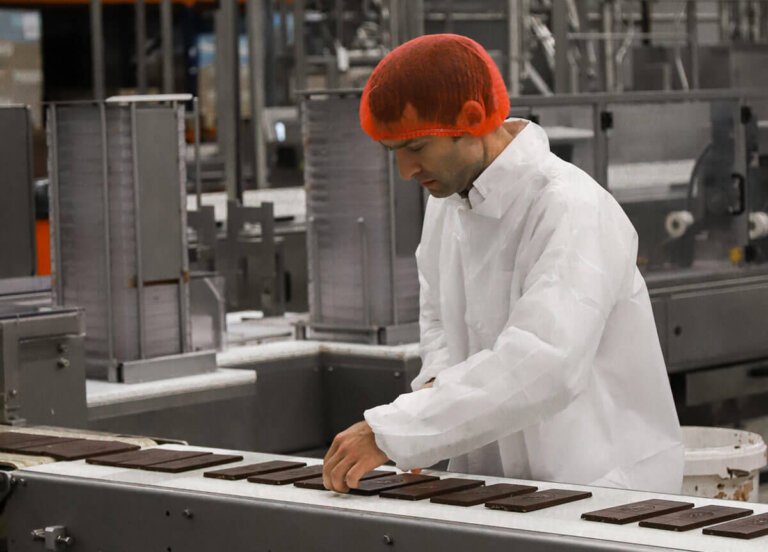Old roots, new values
Reshaping a Belgian chocolate heritage brand for sustainability
Interview with Henry Van Vyve, (Re)Founder and Managing Director at Meurisse
Interview with Henry Van Vyve, (Re)Founder and Managing Director at Meurisse

When Henry and Clément Van Vyve decided to relaunch Meurisse in 2020, they weren’t just reviving a chocolate brand. They were reconnecting with a family legacy and giving it a new, purposeful direction.
“We wanted our business to have a positive impact,” Henry Van Vyve says. “And a lot needs to be done in the chocolate sector.”
Meurisse is the oldest chocolate brand in Belgium. It symbolises Belgian chocolate history. It was founded in 1845 by Henry’s family, who pioneered the industrialisation to improve accessibility and quality. But after being absorbed by larger conglomerates and disappearing from shelves in the mid-2000s, Meurisse became a dormant name—until the brothers decided to bring it back, with sustainability at the heart of the journey.
From the start, Henry and his team focused on making informed decisions. “We wanted to make the right choices from the start. And for that, we looked for the right partners.”
The first step is choosing a sourcing partner with expertise and ethical standards. Meurisse now works exclusively with Cacao-Trace, a programme that guarantees transparent sourcing, quality cocoa, and fair compensation for farmers—plus an added chocolate bonus for every kilo sold.
The second step: going organic. “We eat organic food at home. So we wanted to do the same with Meurisse.”
Beyond organic and Fairtrade certifications, Meurisse also became a B Corp. “It’s not about being a perfect company, but a mindset,” Henry explains. “B Corp signals that a company is trying to do things differently.”
How do they manage all these certifications while not having a dedicated sustainability team? “We’re still a small business. But we surround ourselves well. For all companies looking to transition, finding the right experts to partner with is key.” The B Corp certification process—and upcoming renewal—help push the brand to go further and stay accountable.

However, sustainability isn’t always a straightforward decision. “When rethinking packaging, many factors need to be taken into account, and some contradict each other.”
Their chocolate bars were initially wrapped in home-compostable foil, but user behaviour posed an unexpected challenge. “Since the foil looked and felt like plastic, people weren’t throwing it into the compost. It was polluting recycling streams.” So Meurisse made the pragmatic choice to switch to recyclable plastic—a move Henry describes as “imperfect, but more coherent.”
It’s a typical example of the balancing act that all brands face. In this situation, it’s key to keep the options open for change: “We always try to keep the option open to switch again if we find a better solution,” said Henry.
In a world where brands compete to shout about their impact, Meurisse stands out for its quiet approach. “We communicate very little,” Henry says. “But we want to start communicating more—especially through our carbon report with Tapio.”
This mindset reflects a broader mindset: good products first, communication second. “We just want to make good, responsibly sourced products with a positive impact, if possible. There is no need to base our whole marketing on it.”
Still, Henry recognises the importance of transparency—especially in the face of growing greenwashing concerns. “Labels like B Corp help us convey our values, and having a carbon report will help us base our claims on factual numbers. It’s not about being perfect but showing our engagement transparently and honestly.”